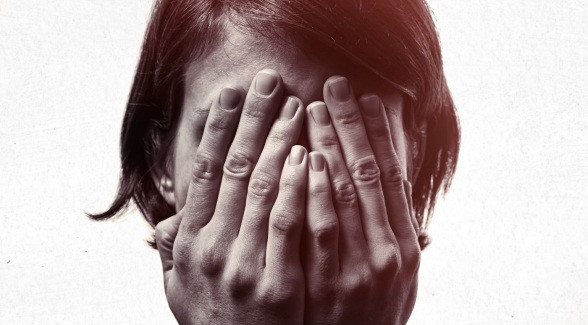One topic that has affected Steven and William personally is that of mental health. In this episode they share their personal experiences of suffering, learning, developing and coping.
Watch a Short Excerpt:
Transcript (continued):
William: Yeah, we have both had plenty of experiences over the years. This is the type of thing that can last half a lifetime or more, I don't know.
Steven: It often feels like several lifetimes, doesn't it.
William: Yeah, it can make things harder to go through. But we also want to get to the positives, because there are some. I think everyone has hard things in their life, and for some people, or for a lot of people, it's mental illness. I think more people then we often realize are affected, because it's something that everyone likes to keep quiet. There's this expectation for us to be always in a good mood, always approachable, always ready to talk to people, ready to work, always have enough energy, at least that's what it can feel like when those things are no longer available.
Steven: There is a lot of expectation. And I find it very strange. I've always been confused by this measurement of ability for us to work or do things. It's measured by the person or people that can do the most. So for example if someone can work for 12 hours or go running for ages, I should have more of the work stuff, then everyone else is expected to be the same. But biologically we're all so different. We're all so... the variation is unreal. Snd therefore why do we expect that everyone's going to be able to measure up the same high standard? It's very strange. I've always been fascinated with that. And it always affects... well I always get confused. But not everyone can do exactly the same as everyone else.
William: Maybe schooling is a big factor: that we all get it graded the same way.
Steven: Yes, that's true.
William: But then some differences are made. Some schools will be more okay with someone having dyslexia for example, and then treat them slightly different in how they're graded, or what courses they go to. So there is some...
Steven: It's progress.
William: Yeah, there's some adaptability there. But yeah, it's difficult. And another reason you just reminded me of is: usually the younger we are, the more simplistic our worldview is. And we keep learning, especially when we're small children. We just soak up a lot of knowledge about the world. We're a big sponge, and then if we keep it up, if we do the work, we can keep adaptable and change our perspective of the world and how it works, how other people work. And that helps keep down the expectations we have for other people and probably ourselves as well. You know, it would be nice to treat everyone individually, but we always make rules, abstractions away from the reality. We create this model in our mind of the world and of what people are. And sometimes that then creates an expectation for everyone to be the pattern that you have built in your mind.
Steven: And mental health just defies all that: patterns and expectations and whatever, because again it's so different from each individual person to person. And we can have similar... we can bracket it under depression or anxiety or OCD or bipolar. There's so many different things. But again, quantifying it from individual to individual is very difficult because we're all very different.
William: The science is still pretty young. The doctor does not have a lot of symptoms to go on. There are tests with those things stuck to your head, for an EEG for example. That way they can measure epilepsy. But yeah, a lot of things cannot be measured materially, objectively. And so there are surveys, there are forms that where you can fill in your personal perspective of what you're going through. And that might help. But it is subjective. I don't know. Personally, when I get to know someone, after a while I will pick up on some things that I associate with depression, or, I don't know, isolation, you know all these small signals that you notice after a while, especially when you've been dealing with the matter yourself or with someone close to you from day to day. And then you become more adept picking up on those signals. And I think that's one of the most sure ways to know what someone is going through from the outside.
Steven: It's difficult to notice this shift sometimes when you around people that have depression. For example when they take a bit of a dive and feel worse, then it's hard to notice because you're kind of like, "It's a case of depression. They've been getting through it. It becomes normal." But the examples of like Robin Williams and Chester Bennington who was the lead singer for Linkin Park. They were known to have depression in their personal lives, and their families and they brought joy and laughter and goodness to people's lives. But on the surface they showed all that happiness and everything. But inside they were really suffering and in turmoil, and it led them to taking their own lives. And it's difficult to notice when, if you're around it a lot, people take that dip. But, so again, that measurement is very difficult. You know, as you say, it's a personal thing each individual has. And it's not like... It's still a physical thing in many ways. But it's not like a broken leg or classed as physical conditions. They're easily defined.
William: I imagine someday we will be better at physically telling the symptoms. You know, brain chemistry is not yet well researched. But we have some theories about neuro... What are they called. The receptors, the gap where serotonin jumps from one cell to another. We have some knowledge some theoretical models of the activity between neurons, the serotonin and the other things that jump from cell to cell. But it is hard to measure and not clear how to classify someone's condition from that. But we want to get more into the emotional, social, everyday part of it anyway.
Steven: I have a question for you, if that's OK. When did you first realize that you were struggling with depression? I don't know if that's too personal or not.
William: That's fine. It's really difficult, well it was really difficult for me to judge when I was depressed, because I was so used to it. I thought it was the normal thing, it was just maybe obvious that I was not as physically active as others, not as excitable by sports or food, you know things that give you excitement in general in people. But I think you have to really hit some wall before you can be sure that you're going through a mental illness, condition. And I think that was when I was 10 for the first time, when my family moved to England. And it was really difficult for me to adapt. I did find friends. I could speak the language. But I missed a lot of things about Germany. And it just made me more sad than it should, or than you would expect.
Steven: Simply change.
William: Yeah, but I adapted and it was fine for a while. And then again when I was 14 or 15 I noticed that some little things that people do bother me. And then someone who I spoke to, just voluntarily, helped me in my parents to recognize that it's OCD. And so we kind of managed. I didn't feel comfortable with therapy. So we left it. And then I came back at a later age. And so it went in cycles like that. But every time it got worse until I really could not do any work, could not focus on anything, some days could not get out of bed. Then it becomes really clear.
Steven: Yeah, that's when it becomes obvious, isn't it.
William: Was it similar for you, that it was really a shock or a surprise?
Steven: Yeah. As you say, it's hard to sort of pinpoint. So as a child I was happy-go-lucky. I was literally known for being a bit of a hurricane, of just playing football, running around, reading the odd book here and there, but just being what you'd call (again I hate the word but) a normal, active child. But then when I hit puberty at twelve, thirteen I just noticed a massive dip in the ability... well it was just highs and lows. So I'd be happy about something, and then the next day I would just literally want to die. The compulsion to just end my life would just kick in. It's almost this constant depressive force of, "What's the point? The world is so cruel. Blah, blah, blah." Stuff that just would be depressive. And I think, you know, I struggled to relate, I guess like all teenagers probably all humans, to a lot of things, and it just left me feeling very lonely, like super alone. And I turned to music for myself, to get help me get through things. I realized that there was definitely a depression. But I think I hit it pretty well as well, because we get used to masks, we put on masks. So I think it was obvious that I was into rock music, metal music, these kind of things that people associate with often getting depressed, but sort of normal society. But that made me happy. This is the interesting thing: because the music was relatable to I didn't feel so alone. So therefore I actually felt happier because of that.
William: Was it about the lyrics, or kind of the rebellious tone?
Steven: Yeah, deeper thinking. I guess a lot of pop music is very shallow. So then I found... It's typical cliche: big brother gives you personal music. It becomes your sort of go-to. And yeah it was Metallica, Offspring, Slipknot at the time, Linkin Park, and it was just, Korn. And they were just bands that would just... I was into extreme things. So I enjoyed the heaviness. It was so different to what I was used to. But as you say, the lyrics often just made me feel the emotion in a relatable way. So I'd feel depressed. They talk about depression, they talk about suicide, or they talk about being angry. And it's just things that I was like, "That's how I feel. I didn't have anyone I could talk to about it."
William: That makes sense.
Other Episodes:
Ep. 51: How Conditioned Are We ?
How much of what you do, think and feel comes from intentional, free chosing? How much of your actions and decisions are pre-programmed? You are the product of your upbringing, culture and genetics. What is out of our control? What can we influence? How can we counteract our predestination?
Ep. 50: What Am I Responsible For ?
Are you taking too little responsibility for your actions, or perhaps too much? How much are you able to understand or determine the consequences of your decisions? Are you in control of anything? Is free will an illusion? Can you do something to improve your thoughts, feelings and relationships with...
Ep. 49: Empathy Can Be A Super Power
Everyone has the choice of either living isolated from other people and their own feelings on the one hand, or to connect with others and their own emotional core. The road towards connectedness involves vulberability and weakness. But it leads to a very rewarding ability that includes deeper understanding of...
Ep. 48: Why Am I Ashamed?
What secrets do you have? What facts about you must never become known to others? What happens in our childhood that implants beliefs in us that hide away for the rest of our life? Can we uncover them deliberately? Can we regain the emotional freedom and levity that playing children...







